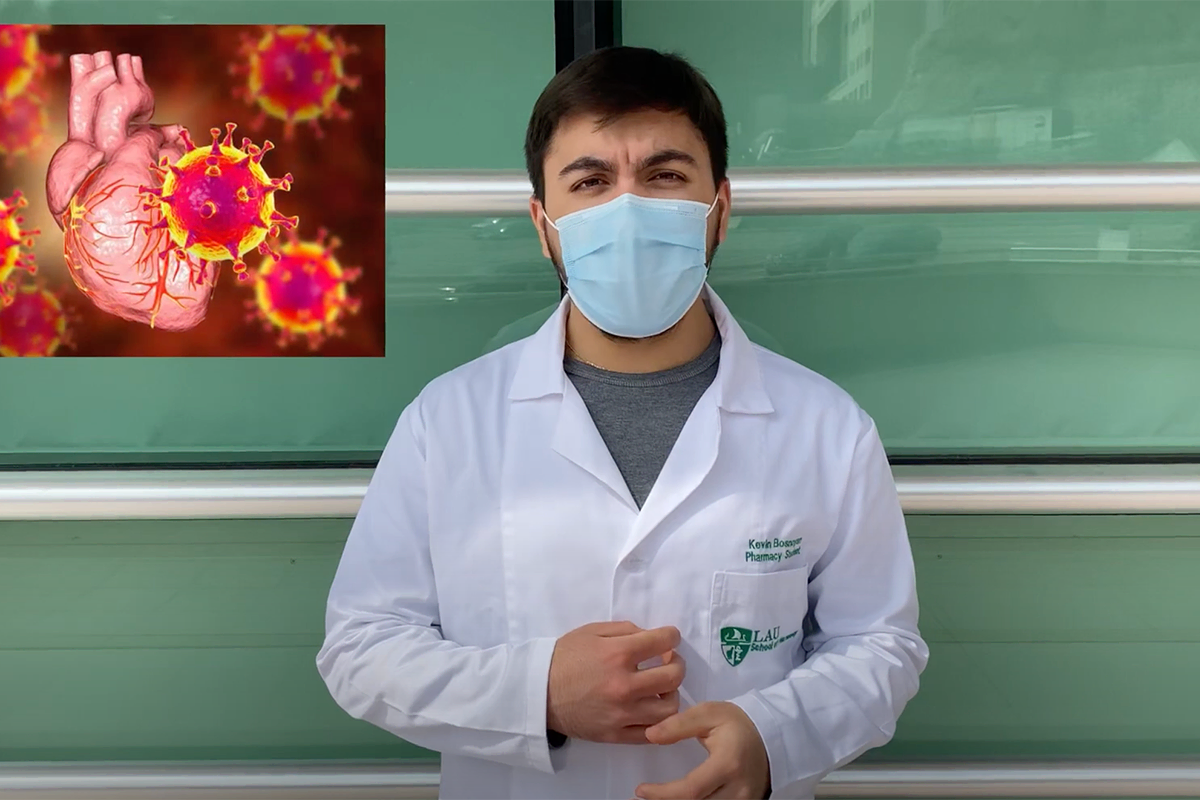Pharmacy Students Engage in a Creative Learning Experience
Beyond disease and drug knowledge, students put their communication skills to the test as they attempt to combat vaccine hesitancy and prepare for real-life patient interactions.
The debate on COVID-19 vaccine uptake arguably began soon after the onset of the pandemic. In Lebanon, according to Our World in Data, a mere 40 percent of the Lebanese population had been immunized by May 11, 2022, with 4.8 percent out of those only partially vaccinated.
Two years on, and as the virus continues to spread, the need for “positive and constructive discussions on immunization against COVID-19 is more valuable than ever,” said Clinical Associate Professor of Pharmacy Ghada El Khoury.
To optimize the students’ learning experience in context, Dr. El Khoury adapted one of her courses, Special Topic Pharmacy Immunization – an elective for professional year 1 (P1) students – that focuses on adult, vaccine-preventable diseases and the role of pharmacists as patients’ advocates. In addition to updating the course content, she tasked the students with raising awareness of the COVID-19 vaccine by producing educational videos for the public that addressed vaccine hesitancy in a professional and scientific manner.
This novel teaching method is particularly important as it reinforced the students’ knowledge of diseases and drugs, while bolstering their soft skills, which are key to successfully engage with patients, noted Dr. El Khoury.
“It also motivated them while fulfilling an objective: learning while having fun, which I strongly believe in and encourage,” she added.
Having understood that direct, pro-vaccination messages do not work, the students opted to focus instead on the negative consequences of contracting the disease. “We drew from our professional knowledge and gathered medical information that drives the message home,” explained Sarah El Ali.
For the project, the students pored over medical data, fact-checked and connected the information to weave a relevant and captivating message. “I acquired presentation, communication and creative skills to be able to effectively deliver health information to the largest number of people possible,” said Kevin Bosnoyan. “This also involved data analysis and critical thinking, and it made me realize how mindful we should be when passing on scientific data.”
Indeed, the project helped the students gain the patient’s perspective, as Marc Anlian pointed out. “To design an awareness campaign is one thing, but to effectively advocate for the vaccine and appeal to the patient’s moral obligation toward society was a real challenge,” he noted. “The exercise truly helped me understand the different types of patients and see matters from their perspectives, while projecting real-life interactions.”
This is at the core of the School of Pharmacy’s mission, vision and values. “We prepare pharmacy students to become leaders in the profession and equip them not only with disease-and-drug knowledge, but also with the skills to interact and positively impact different patient populations,” affirmed Dr. El Khoury.
Drawing from research, she underscored that “having fun while learning avails unique cognitive resources, associates reward and pleasure with information, strengthens and broadens memory networks, and ties abstract thinking and focused attention.”
As a result, said Anlian, “these are the projects that we will eventually remember and come to associate our courses with.”
